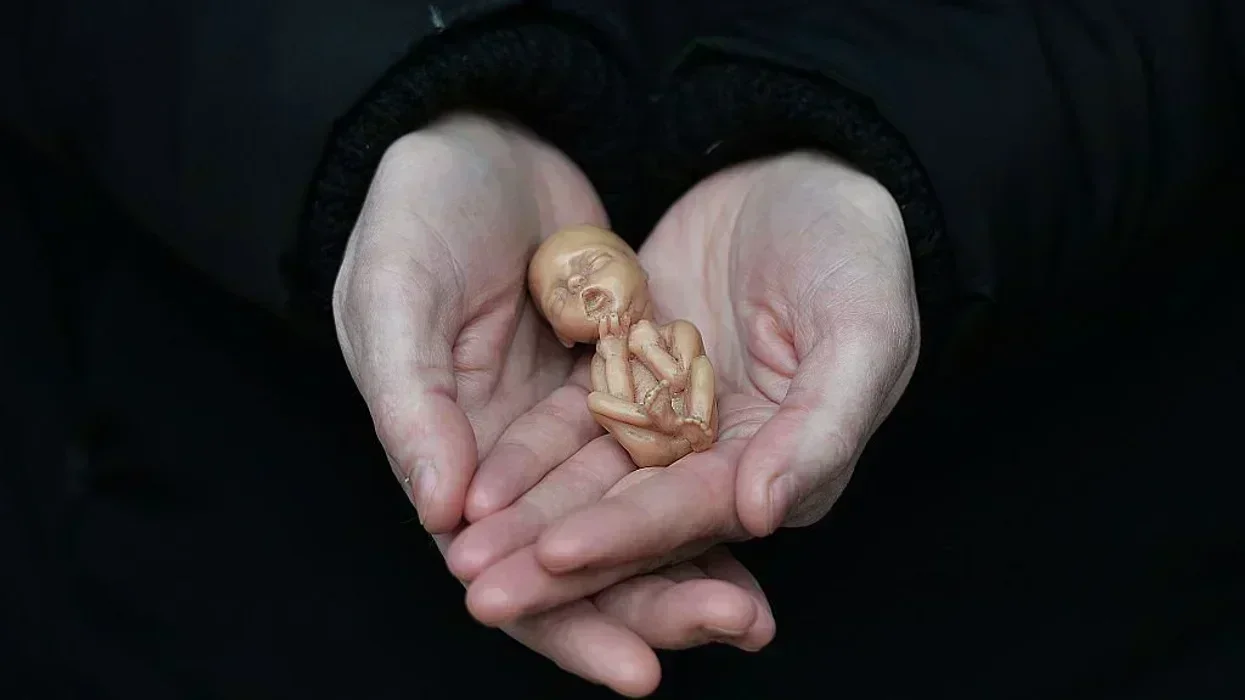
Charles McQuillan/Getty Images

The court found that an order against a pro-life advocate trying to save babies and souls was unconstitutional.
The Wisconsin Supreme Court, whereon liberals make up the majority, ruled unanimously in favor of Christian pro-life advocate Brian Aish on Thursday, undoing an injunction that prevented him from peacefully protesting abortion at locations where a specific nurse was present.
Aish has spent years protesting the slaughter of the unborn. He frequently did so on the public sidewalk outside the former Planned Parenthood abortion clinic in Blair, Wisconsin. Court documents indicate he would "warn women [seeking abortions] they will be accountable to God on the day of judgment if they proceed" and would also quote Bible verses and hold up signs.
After several interactions with Aish, nurse Nancy Kindschy sought a harassment injunction in March 2020 against the pro-life advocate.
On Feb. 18, 2020, Aish was recorded as saying to Kindschy, "I pray you guys make it home safely for another day or two until you turn to Christ and repent. You still have time."
This and other alleged remarks had apparently set off the nurse.
The circuit court acknowledged that Aish's pleading with the abortion nurse came "from a place of love or nonaggression" and were made in the context of "convey[ing] a message of repentance."
Aish had, after all, testified that his aim was to "warn those going in there that if they're going to even consider torturing and murdering their child for convenience or choice, they're being misled and they're going to be accountable [to God] because they're shedding innocent blood of a child."
He indicated further that his warnings to Kindschy and others about traffic accidents were to emphasize "we don't know if we'll have a tomorrow. So God warns us, don't assume you're going to have a tomorrow" to repent.
Despite recognizing his intent, the lower court concluded Aish's statements were nevertheless intimidating and did not serve a "legitimate purpose."
'No reasonable factfinder could have made such a finding based on the record.'
Aish was slapped with a four-year restraining order, which barred him from speaking to the nurse and effectively prevented him from protesting outside the abortion clinic where she sometimes worked.
The pro-life advocate appealed, but the appellate court upheld the injunction.
The Wisconsin Supreme Court reviewed the case in the wake of the U.S. Supreme Court's ruling in Counterman v. Colorado. The Wisconsin justices indicated that in Counterman, the SCOTUS held "that in a criminal prosecution for harassment premised on true threats, the First Amendment requires the government to prove at a minimum that the defendant 'consciously disregarded a substantial risk that his communications would be viewed as threatening violence.'"
In light of the Counterman ruling, the Wisconsin Supreme Court found that even if Aish's statements were legitimate threats, the harassment injunction still violated the First Amendment because the lower court failed to establish that Aish exhibited such a conscious disregard.
Justice Rebecca Bradley underscored in her concurring opinion that Aish's statements were not real threats to begin with and that "no reasonable factfinder could have made such a finding based on the record before the circuit court."
Bradley noted that to constitute a true threat, "The communication must express, explicitly or implicitly, that the speaker or a co-conspirator intends to inflict imminent or future injury on the victim. ... This element is essential. Speech cannot be punished or restricted on the ground that a listener 'fears a generalized harm because of what the speaker has suggested.'"
The Wisconsin Supreme Court underscored in its majority opinion that the injunction amounted to "a content-based restriction on Aish's speech and that it fails to satisfy strict scrutiny" and thereby "violates the First Amendment." It ruled, accordingly, to ax the injunction.
Joan Mannix, the executive vice president of the Thomas More Society whose attorneys represented Aish in the case, stated the ruling "reaffirms that the First Amendment embodies a paramount American value of protecting free speech, even if the viewpoint expressed may be unpopular or controversial — a value that transcends partisan divides."
The Free Speech Center at Middle Tennessee State University indicated that Kindschy has since retired, and the clinic where she worked has been shuttered.
Like Blaze News? Bypass the censors, sign up for our newsletters, and get stories like this direct to your inbox. Sign up here!